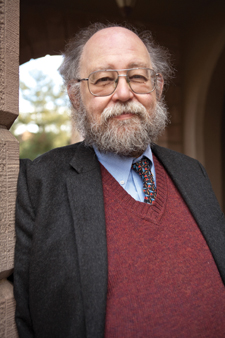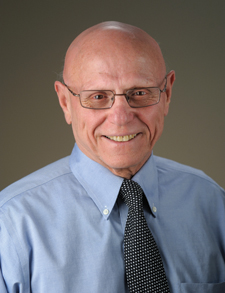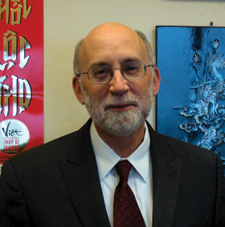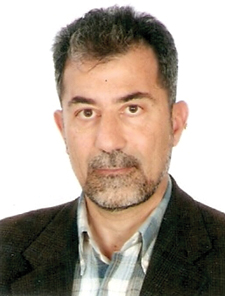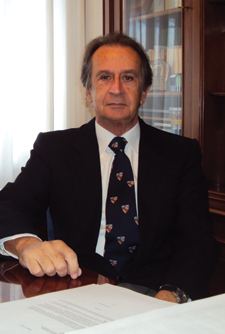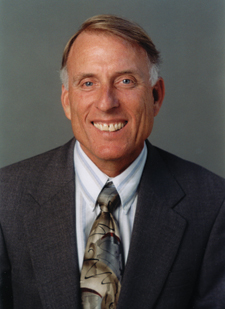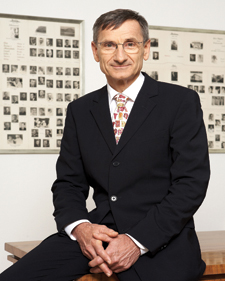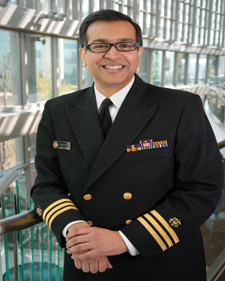April 9, 2012
Society of Scholars inducts new members
The Society of Scholars was created on the recommendation of then President Milton S. Eisenhower and approved by the university board of trustees on May 1, 1967. The society—the first of its kind in the nation—inducts former postdoctoral fellows, postdoctoral degree recipients, house staff and junior or visiting faculty who have served at least a year at Johns Hopkins and thereafter gained marked distinction elsewhere in their fields of physical, biological, medical, social or engineering sciences or in the humanities and for whom at least five years have elapsed since their last Johns Hopkins affiliation. The Committee of the Johns Hopkins Society of Scholars, whose members are distributed among the academic divisions, elects a limited number of scholars from the candidates nominated by the academic divisions with postdoctoral programs.
The scholars elected in 2012 will be invested at a ceremony hosted by Provost Lloyd B. Minor at 4 p.m. on Tuesday, April 10, in the Peabody Institute’s Griswold Hall, where each will be presented with a certificate and a medallion on a black-and-gold ribbon. The induction, which brings to 579 the total number of members in the Johns Hopkins Society of Scholars, will be followed by a dinner in the George Peabody Library.
The following listing of the Society of Scholars members elected in 2012 is accompanied by a short description of their accomplishments at the time of their election to the society, along with the name and affiliation of their nominators.
Timothy G. Buchman
Atlanta
Timothy G. Buchman is widely recognized as a leading authority in critical care, with research spanning the bench-to-bedside continuum and including studies of multiple organ dysfunction syndrome, genetics of sepsis and end-of-life care. He has recently expanded his research to apply systems biology to critical care and clinical medicine. A professor of surgery and anesthesiology at the Emory University School of Medicine, he is the founding director of the Emory Center for Critical Care, the first of its kind in the nation. Buchman is president of the Shock Society and past president of the Society for Complexity in Acute Illness and the Society of Critical Care Medicine. Before joining Emory, he served as professor of surgery and director of acute and critical care surgery at Washington University School of Medicine in St. Louis. Prior to his time at Washington University, Buchman directed the surgical intensive care unit and the trauma center at The Johns Hopkins Hospital, where he was an intern and assistant resident from 1980 to 1983 and chief resident in the Department of Surgery from 1984 to 1985.
Buchman was nominated by Julie A. Freischlag, the William Stewart Halstead Professor and chair of the Department of Surgery, School of Medicine, and surgeon in chief, The Johns Hopkins Hospital.
Daniel Garber
Princeton, N.J.
Daniel Garber is one of the foremost scholars of early modern philosophy and science. His significant contributions have helped create a thriving community of early modern philosophy academics on both sides of the Atlantic. A member of the American Academy of Arts and Sciences, he is the Stuart Professor of Philosophy and chair of the Department of Philosophy at Princeton University. Garber was a visiting assistant professor at Johns Hopkins from 1980 to 1981, after which he published a series of groundbreaking articles and books on the physics of Descartes and Leibniz. His academic research combines historical precision with philosophical rigor in a manner that is second to none, and he is currently working on a variety of topics, including the scientific revolution and 17th-century Aristotelianism in France. Garber is the founder and co-editor of the leading journal Oxford Studies in Early Modern Philosophy and the editor-in-chief of a new edition of the works of the seminal 17th-century thinker Jacobus Fontialis.
Garber was nominated by Yitzhak Melamed, associate professor, Department of Philosophy, Krieger School of Arts and Sciences.
James E.K. Hildreth
Davis, Calif.
James E.K. Hildreth is a pre-eminent AIDS researcher, academic and mentor whose groundbreaking work has led to new therapeutic/preventive directions, including candidate microbiocides for clinical development. A Rhodes Scholar, he completed postdoctoral work in the Johns Hopkins Department of Pharmacology and Experimental Therapeutics in 1984 and then became a member of the faculty, achieving the rank of professor in 2002. While at Johns Hopkins, he was also the School of Medicine’s inaugural associate dean for graduate student affairs. In 2005, Hildreth joined the faculty at Meharry Medical College, where he founded the Center for HIV and AIDS Health Disparities Research. In 2011, he was selected as dean of the College of Biological Sciences at the University of California, Davis, with appointments in the college’s departments of Molecular and Cell Biology and of Internal Medicine. He has been widely recognized for his contributions to serving the health care needs of underserved and underrepresented populations, including being elected to membership in the Institute of Medicine and being named the recipient of a 2011 NIH Pioneer Award.
Hildreth was nominated by Philip A. Cole, professor and director, Department of Pharmacology and Molecular Sciences, School of Medicine.
Alan F. Karr
Research Triangle Park, N.C.
Alan F. Karr is an innovative and cross-disciplinary thinker, engaging in research that links the field of statistics to materials science, software engineering and transportation. He helped found the National Institute of Statistical Sciences in 1992 and has been its director since 2000. In this role, he manages one of the world’s most important statistics research organizations. Karr is an intellectual leader in the area of inference for point processes, notably for his work generalizing Cox regression, and he co-authored the first paper that demonstrated how to determine whether two neurons were being stimulated by a common source. In 1984, Karr was elected a fellow of the Institute of Mathematical Statistics for groundbreaking work in stochastic processes. In 1997, he was named a fellow of the American Statistical Association in recognition of his achievements and for outstanding service to the statistics profession. At Johns Hopkins, he joined the Whiting School of Engineering’s Department of Mathematical Sciences in 1973 and achieved the rank of full professor in 1983. He chaired the department from 1985 to 1986 and then served as an associate dean in the school until 1992.
Karr was nominated by Daniel Q. Naiman, professor and department chair, and John C. Wierman, professor, both in the Department of Applied Mathematics and Statistics, Whiting School of Engineering.
Christoph Lengauer
Cambridge, Mass.
Christoph Lengauer has risen to the top of his profession—cancer drug discovery—at a meteoric pace. He was a postdoctoral fellow in oncology at Johns Hopkins from 1994 to 1996 and then joined the faculty, subsequently becoming an associate professor of oncology; he also directed the Cell Imaging Core Facility at the Sidney Kimmel Comprehensive Cancer Center. In 2005, Lengauer became a unit head at the Novartis Institutes for Biomedical Research. Over the next three years, he was promoted to executive director of drug discovery at Novartis and then was named head of the company’s global Oncology Target Identification and Validation group. He received the Novartis Oncology President’s Award in 2007 as the top innovator in the company. Recognizing his unique talents, Sanofi recruited Lengauer to be the global head of oncology discovery, supervising the work of more than 350 scientists. Lengauer currently serves as chief scientific officer of Blueprint Medicines, a developer of state-of-the-art personalized cancer therapies. In addition to serving as consultant and adviser to international groups, Lengauer has been responsible for the development of several new chemotherapeutic agents now in clinical trials.
Lengauer was nominated by Bert Vogelstein, professor of oncology and pathology, School of Medicine.
Vincent C. Manganiello
Bethesda, Md.
Vincent C. Manganiello is internationally recognized for his studies of cyclic nucleotide phosphodiesterases, a multigene family that regulates many fundamental biological processes by controlling intracellular cAMP and cGMP concentrations. He received his medical degree and a doctoral degree in physiological chemistry from Johns Hopkins and served as an intern in the Harriet Lane Pediatric Service from 1967 to 1968. In 1968, Manganiello joined the National Heart, Lung and Blood Institute, where he is chief of the Laboratory of Biochemical Physiology in the Cardiovascular and Pulmonary Branch. He has focused his research primarily on the PDE3 gene family because of its relevance to the understanding and treatment of diabetes and obesity, cardiovascular disease and female infertility.
Manganiello was nominated by Paul A. Watkins, professor of neurology and research scientist, School of Medicine and Kennedy Krieger Institute.
Teri A. Manolio
Bethesda, Md.
Teri A. Manolio is an accomplished cardiovascular epidemiologist with prominence as a scientist and leader at the National Institutes of Health. Among her many accomplishments, she initiated and expanded major national studies, including the Cardiovascular Health Study, Multi-Ethnic Study of Atherosclerosis, Jackson Heart Study and Framingham Study Third Generation, to incorporate state-of-the-art sciences, such as imaging of subclinical atherosclerotic disease, health disparities and genomewide linkage analyses. In 2005, Manolio moved to the National Human Genome Research Institute to integrate genomic technologies into population studies on a broader scale. She established critically needed, collaborative genomewide association studies across unrelated diseases and created guidelines for sharing genomic data widely with protections for participant confidentiality. Manolio is director of the Office of Population Genomics at NHGRI and senior adviser to the director of NHGRI for population genomics. She was a fellow in the Division of General Internal Medicine at Johns Hopkins from 1984 to 1987.
Manolio was nominated by Diane M. Becker, professor of medicine, director of the Center for Health Promotion and director of the GeneSTAR Research Program, School of Medicine.
Stephen J. McPhee
San Francisco, Calif.
Stephen J. McPhee is a master physician, prolific researcher, leading editor of core clinical textbooks and honored mentor of researchers and medical students. A practicing physician and emeritus professor of medicine at the University of California, San Francisco, he is recognized as one of the top internists on the West Coast. He has been the principal investigator on nearly 70 grants and contracts, with a primary focus on cancer prevention; health promotion and disease prevention among Vietnamese and other Asian populations; and palliative, end-of-life and geriatric care. McPhee has worked with more than 125 hospitals to establish palliative care consultation services. From 2000 to 2008, he and his colleagues at UCSF coordinated a bimonthly series titled “Perspectives on Care at the Close of Life” that appeared in the Journal of the American Medical Association. McPhee has served as editor for several medical textbooks and references, written more than 40 books and published more than 175 scientific articles in peer-reviewed medical literature. He received his medical degree from Johns Hopkins in 1976 and was an intern, assistant resident and fellow in the Department of Medicine from 1976 to 1980.
McPhee was nominated by Albert W. Wu, professor, Health Policy and Management, Bloomberg School of Public Health, and Medicine, School of Medicine.
Iman Nuwayhid
Beirut
Iman Nuwayhid, professor and dean of the Faculty of Health Sciences at the American University of Beirut, is a leader in research, education and effective policy development in public health in Lebanon and the Middle East. After receiving a master’s degree in occupational medicine and epidemiology from the Johns Hopkins Bloomberg School of Public Health in 1985, he returned to Lebanon, where he has become an important change agent in public health and health services. During his career, Nuwayhid has made outstanding advances in the field of occupational health research in developing countries, specifically regarding accident and injury prevention, drinking water safety and waterborne illness prevention, prevention of neurobehavioral impairment in children due to toxic occupational exposures, and pediatric and adult lead poisoning control and prevention. Nuwayhid has led many efforts in policy development for environmental health and has inspired students and junior colleagues through his teaching and research achievements.
Nuwayhid was nominated by Haroutune Armenian, professor emeritus, Department of Epidemiology, Bloomberg School of Public Health.
Paolo Pasquini
Rome
Paolo Pasquini has had an illustrious career, with significant contributions to areas as diverse as infectious diseases, dermatology and psychiatry. After receiving his master’s degree in public health from the Johns Hopkins Bloomberg School of Public Health in 1977, he became medical officer for the Regional Health Department in Rome. He then joined the clinical epidemiology unit at the Istituto Superiore de Sanita, Italy’s national health institute. After a brief stint at the World Health Organization, he became director of research at the ISS, and subsequently assumed his current role as scientific director and director of clinical research and psychology at the Istituto Dermopatico dell’Immacolata, an institution devoted to clinical care and research in dermatology. At the IDI, Pasquini’s experience in psychiatry and cognitive psychotherapy allowed him to study the epidemiology of psychiatric disorders and their relation to skin conditions. Pasquini’s productivity as a researcher is reflected in his numerous articles in peer-reviewed journals. His achievements in the field of dermatology and its interface with psychiatry have included seminal studies of depression, psychological distress and borderline personality disorder.
Pasquini was nominated by Moyses Szklo, professor of epidemiology, Bloomberg School of Public Health, and of medicine, School of Medicine.
John A. Phillips III
Nashville, Tenn.
John A. Phillips III is widely recognized for his contributions to understanding the molecular mechanisms that can cause genetic developmental disabilities. For 27 years, he has led the Division of Pediatric Genetics at Vanderbilt University School of Medicine, where he is the David T. Karzon Professor of Pediatrics, with joint appointments in Biochemistry, Medicine and Pathology. Among his achievements in the use of molecular methods to discover the molecular bases of Mendelian disorders, Phillips found that familial growth hormone deficiency can result from GH1 gene deletions, a discovery that explains why affected individuals often develop anti-GH antibodies and resistance to growth hormone replacement therapy. Subsequently, he found that Isolated GHD Type II is caused by dominant negative effects of exon-skipping mutations, and that germline transmission of small interfering RNA cured a murine model of IGHD II. In familial idiopathic pulmonary fibrosis, his research uncovered mutations in the surfactant and telomerase genes. Phillips was a research fellow in the Pediatrics Genetics Unit at Johns Hopkins from 1975 to 1977, and a member of the university’s faculty from 1977 to 1984.
Phillips was nominated by Haig H. Kazazian Jr., professor of human genetics, School of Medicine.
Robert P. Schleimer
Chicago
Robert P. Schleimer is acknowledged as an outstanding scientist by the clinical, academic and pharmaceutical communities. He is chief of the Division of Allergy-Immunology in the Department of Medicine, the Roy and Elaine Patterson Professor of Medicine and professor of otolaryngology–head and neck surgery at the Northwestern University Feinberg School of Medicine. From 1979 to 1981, Schleimer was a postdoctoral fellow at Johns Hopkins in the Division of Allergy and Clinical Immunology. He joined the faculty in 1981 and achieved the rank of professor of medicine before moving to Northwestern University in 2004. His long-standing research focus is on the immunopharmacology of allergic inflammation, cell adhesion, migration and, more recently, innate and acquired immune responses of the upper airways in humans. Schleimer has received NIH funding for more than 25 years, and he recently received an NIH Merit Award from the National Heart, Lung and Blood Institute. He has been a member of the scientific advisory boards of more than a dozen pharmaceutical companies and has published more than 260 papers and edited numerous books and journal supplements. He has trained more than 35 postdoctoral fellows and graduate students, with the majority becoming established investigators in academia and industry.
Schleimer was nominated by Bruce S. Bochner, the Cosner Scholar in Translational Medicine, professor of medicine and director of the Division of Allergy and Clinical Immunology, Johns Hopkins Asthma and Allergy Center.
Achim Schneider
Berlin
Achim Schneider is among the pioneers who developed, perfected and evaluated laparoscopic techniques to assist in the treatment of gynecological cancers. He is a professor of gynecology and gynecologic oncology and chairman of the Department of Gynecology and Gynecologic Oncology and Breast Center at the Charite-University Medicine Berlin. He came to Johns Hopkins in 1985 to study human papillomaviruses and cervical cancer. During his research, he realized the importance of epidemiologic concepts in clinical investigations, and he returned to Johns Hopkins to gain expertise in epidemiology, receiving a master’s degree in public health in 1989. Schneider has achieved high distinction and international recognition for his subsequent research in HPV and cervical cancer and for the development and value of laparoscopic surgery in gynecologic oncology. Dr. Schneider has published more than 113 papers and has been a visiting professor at the University of Arizona and the Barbara Jordan More Visiting Professor in Gynecologic Oncology at Memorial Sloan-Kettering Cancer Center. Currently, he is a member of the World Health Organization working group that produced the report Comprehensive Cervical Cancer Control: A Guide to Essential Practice.
Schneider was nominated by Keerti V. Shah, professor of molecular microbiology and immunology, Bloomberg School of Public Health, and of oncology, School of Medicine.
Arjun Srinivasan
Atlanta
Arjun Srinivasan is leading the antibiotic stewardship efforts and the public campaign to improve antibiotic use with the ultimate goal of decreasing the health care burden of multidrug-resistant organisms. A captain in the U.S. Public Health Service, Srinivasan is associate director for Healthcare Associated Infection Prevention Programs in the Division of Healthcare Quality Promotion at the Centers for Disease Control and Prevention. He was an intern, resident and fellow in the Department of Medicine at Johns Hopkins from 1996 to 2001. He then served as an assistant professor of medicine in the Infectious Diseases Division, where he was the founding director of the Antimicrobial Stewardship Program and the associate hospital epidemiologist. Since joining the CDC, Srinivasan has led more than 35 investigations of outbreaks. As a result of these investigations, changes in national policy and guidelines have been implemented to prevent health care–associated infections. He provides CDC oversight and coordination of the efforts of all state health department activities related to health care–associated infections, and is the medical director for the Get Smart for Healthcare initiative, a CDC program designed to improve the use of antimicrobials in inpatient health care facilities. Srinivasan has published several articles in peer-reviewed journals on his research in health care epidemiology, infection control, and antimicrobial use and resistance.
Srinivasan was nominated by Trish M. Perl, professor of infectious diseases, departments of Medicine, Pathology and Epidemiology, School of Medicine.
Steven L. Wesselingh
Adelaide, South Australia
Steven L. Wesselingh is internationally recognized as an expert in viruses that affect the human brain, and he has played a key role in demonstrating the importance of inflammatory mediators in HIV-associated dementia. He was a postdoctoral fellow and assistant professor in the Department of Neurology at Johns Hopkins from 1991 to 1994. Upon returning to Australia in 1994, Wesselingh established the Neurovirology Research Unit at Flinders and quickly became a leader in Australian academic medicine. In 1998, he was president of the Australian Society for Medical Research. In 1999, he was appointed director of the Infectious Diseases Unit at the Alfred Hospital and Monash University and subsequently became director of the Burnet Institute, Australia’s largest biomedical research group specializing in infectious diseases, immunology and public health. In 2007, he became dean of the Faculty of Medicine, Nursing and Health Sciences at Monash University, and in 2011, he was appointed to his current position as executive director of the South Australian Health and Medical Research Institute.
Wesselingh was nominated by Justin C. McArthur, professor and director, Neurology, School of Medicine.



